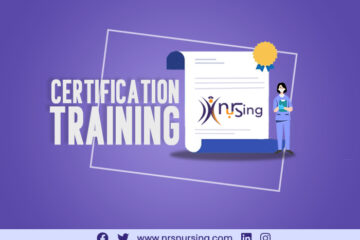As the healthcare sector expands globally, many Nepali healthcare professionals, particularly nurses, seek opportunities abroad. The growing demand for international qualifications and language proficiency tests like NCLEX, IELTS, OET, and OBA (Outcome-Based Assessment) reflects this trend. These exams are crucial for those aspiring to practice and excel internationally in healthcare careers. In this blog, we will discuss why these exams are in high demand in Nepal, the benefits they offer, and how to prepare effectively.
NCLEX: Gateway to Nursing Careers Abroad
What is the NCLEX? The NCLEX (National Council Licensure Examination) is a standardized exam required for licensure as a registered nurse (RN) or practical nurse (LPN) in the United States and Canada.
Why is NCLEX in Demand?
- Career Opportunities: Many Nepali nurses seek to work in the U.S. and Canada due to the higher demand for nursing professionals.
- Better Compensation: Nursing positions abroad often come with higher salaries and better benefits.
- Professional Development: Working in advanced healthcare systems provides valuable experience and growth opportunities.
Preparation Tips for NCLEX:
- Understand the Test Format: Familiarize yourself with the structure and types of questions.
- Use Quality Study Materials: Resources like Kaplan, UWorld, and Saunders are highly recommended.
- Join Study Groups: Collaborate with peers for shared learning and support.
- Regular Practice: Consistent practice and review are keys to success.
IELTS: Proving English Proficiency
What is the IELTS? The IELTS (International English Language Testing System) is a globally recognized test for English language proficiency, commonly required for immigration, university admissions, and professional registration.
Why is IELTS in Demand?
- Immigration Requirements: Countries like the UK, Australia, Canada, and New Zealand require IELTS scores for visa and immigration purposes.
- Educational Opportunities: Many universities require IELTS scores for admission.
- Professional Registration: Various professional bodies, including nursing boards, require IELTS for English proficiency validation.
Preparation Tips for IELTS:
- Understand the Test Format: Know the four sections (Listening, Reading, Writing, Speaking) and types of questions.
- Practice with Sample Tests: Use official practice materials and sample tests.
- Improve English Skills: Regular practice in listening, speaking, reading, and writing.
- Enroll in Preparation Courses: Structured guidance can enhance your performance.
OET: Tailored for Healthcare Professionals
What is the OET? The OET (Occupational English Test) is an English language test specifically designed for healthcare professionals, assessing language skills in a healthcare context.
Why is OET in Demand?
- Healthcare-Specific: Focuses on medical language and scenarios relevant to healthcare professionals.
- International Recognition: Accepted by healthcare boards in countries like Australia, New Zealand, the UK, and Ireland.
- Enhanced Communication Skills: Helps improve communication skills essential for patient care.
Preparation Tips for OET:
- Understand the Test Structure: Familiarize yourself with the Listening, Reading, Writing, and Speaking sections tailored to healthcare.
- Use Official Materials: Utilize OET practice tests and materials.
- Engage in Professional Language Practice: Practice speaking and writing in clinical contexts.
- Join Preparation Courses: Structured courses can provide targeted practice and feedback.
OBA: Outcome-Based Assessment
What is the OBA? The Outcome-Based Assessment (OBA) is used primarily in Australia to assess the qualifications and competencies of internationally educated nurses and midwives.
Why is OBA in Demand?
- Australian Registration: Essential for international nurses seeking registration and practice in Australia.
- Competency Validation: Ensures that international nurses meet Australian standards of practice.
- Career Opportunities: Facilitates employment in Australia’s robust healthcare system.
Preparation Tips for OBA:
- Understand the OBA Components: Know the theoretical and practical components of the assessment.
- Study Australian Healthcare Practices: Familiarize yourself with the Australian healthcare system and standards.
- Use Preparation Resources: Access study guides and practice tests specific to OBA.
- Seek Mentorship: Connect with professionals who have successfully navigated the OBA process.
Conclusion
The demand for NCLEX, IELTS, OET, and OBA in Nepal is driven by the aspirations of healthcare professionals to work, study, and advance their careers internationally. By understanding the importance of these exams and dedicating time to thorough preparation, Nepali nurses and other healthcare professionals can achieve their goals and open doors to new opportunities abroad. Whether you aim to pass the NCLEX for a nursing career, prove your English proficiency with IELTS, demonstrate your medical communication skills with OET, or validate your competencies through OBA, the right resources and strategies will pave the way for your success.




